Key Points:
- We have a strong cultural bias towards early sport specialization, with the belief that specialization from the youngest ages is the best way to achieve elite status as teenagers or young adults
- However, early sport specialization is correlated to increased risk of sport-ending overuse injury and burnout
- The vast majority of NCAA athletes report that they participated in multiple sports as kids and didn?t specialize until around age 15
- A recently published scientific review article provides valuable summary recommendations as I note below, including benefits of early multi-sport participation and limitation of hours in sport per week (max hours per week= child?s age in years)
Close to 30 million adolescent and teenage kids in the United States play club or  competitive sports, and yet somehow that doesn?t translate to a lifetime of fitness. Furthermore, early sport specialization doesn?t ensure a better chance at securing elite status as young adults. I?d love to see more kids playing sports because they really want to, and then have that lead to a lifetime of strong fitness habits. I?d also like to see those kids who truly have the desire and potential to be elite athletes get the chance to develop. So how do we create a structure that encourages broad participation for most kids and elite development opportunities for those who want it? Many experts in childhood sports medicine are drawing upon their experience and published scientific literature to recommend multi-sport participation for the young athlete, and later sport specialization for the highly motivated athlete.
competitive sports, and yet somehow that doesn?t translate to a lifetime of fitness. Furthermore, early sport specialization doesn?t ensure a better chance at securing elite status as young adults. I?d love to see more kids playing sports because they really want to, and then have that lead to a lifetime of strong fitness habits. I?d also like to see those kids who truly have the desire and potential to be elite athletes get the chance to develop. So how do we create a structure that encourages broad participation for most kids and elite development opportunities for those who want it? Many experts in childhood sports medicine are drawing upon their experience and published scientific literature to recommend multi-sport participation for the young athlete, and later sport specialization for the highly motivated athlete.
A recently published review article by lead author Gregory Myer in the journal Sports Health offers a number of valuable insights. There?s a very common belief that single sport specialization from a very early age (just past diapers in the case of one Tiger Woods?) is the best way to gain elite status as a teenager, or a college scholarship, or professional greatness. This may in fact be true for sports such as figure skating or gymnastics but it doesn?t appear to be true for almost all other sports, especially team sports. Retrospective reviews of NCAA athletes in several sports have shown that close to 90% of the athletes played multiple sports as a youngster and didn?t specialize in a single sport until around age 15. Clearly, it?s common for high-level collegiate athletes to come from a multi sport background.
And furthermore, there is a strong and growing body of evidence that points to single sport specialization in the young athlete as a key factor in developing overuse injuries (potentially sport ending injuries), burnout, and decreased interest in lifetime fitness.
The summary recommendations from the review article make sense, although I would point out that it would be helpful if future studies could prove a cause and effect relationship (for example, following the hours based recommendations leads to fewer overuse injuries, etc.). Here are the key points in my opinion:
- The youngest athletes should avoid single sport specialization and should be given opportunities for sampling several sports through free unstructured play
- Participants in gymnastics, diving, and figure skating should wait until early adolescence to specialize
- Participants in tennis, golf, and most team sports should wait until middle adolescence to specialize
- Participants in endurance sports, track, and distance events should wait until late adolescence to specialize
- Children who do participate in more hours of sport per week than their age in years and who are specialized in sport activities should be closely monitored for indicators of burnout and overuse injury
These recommendations won?t be easy to implement across the board as there is a strong cultural bias towards early specialization. But I do hope that increased awareness of the possible problems with specialization will start the conversation towards a better environment for young athletes to succeed for life.
Click here for full podcast playlist.













